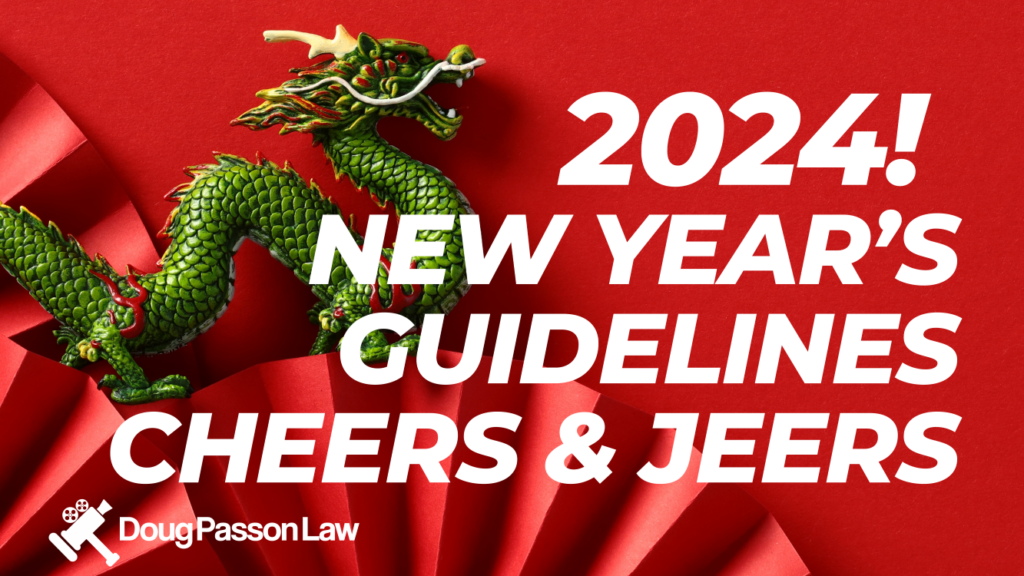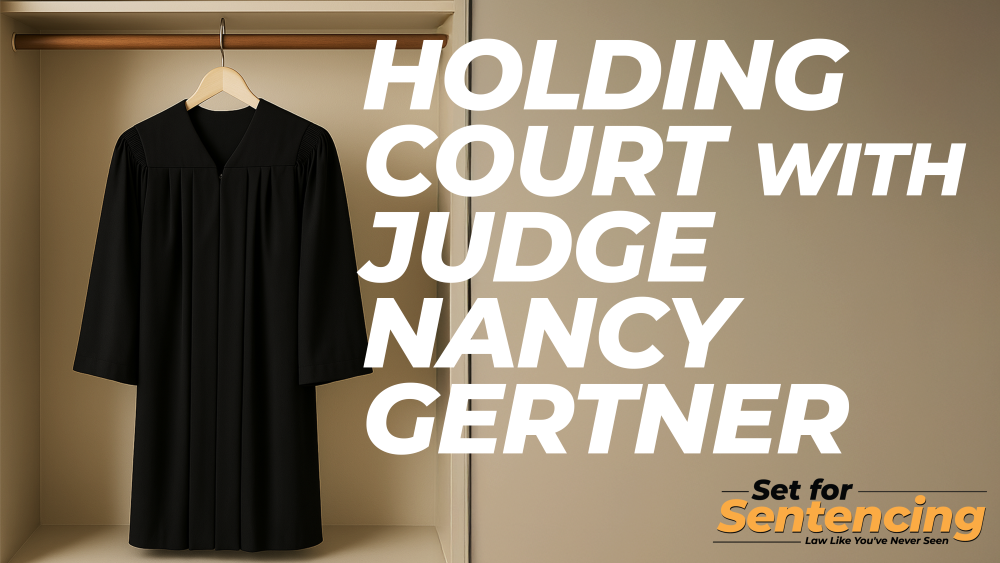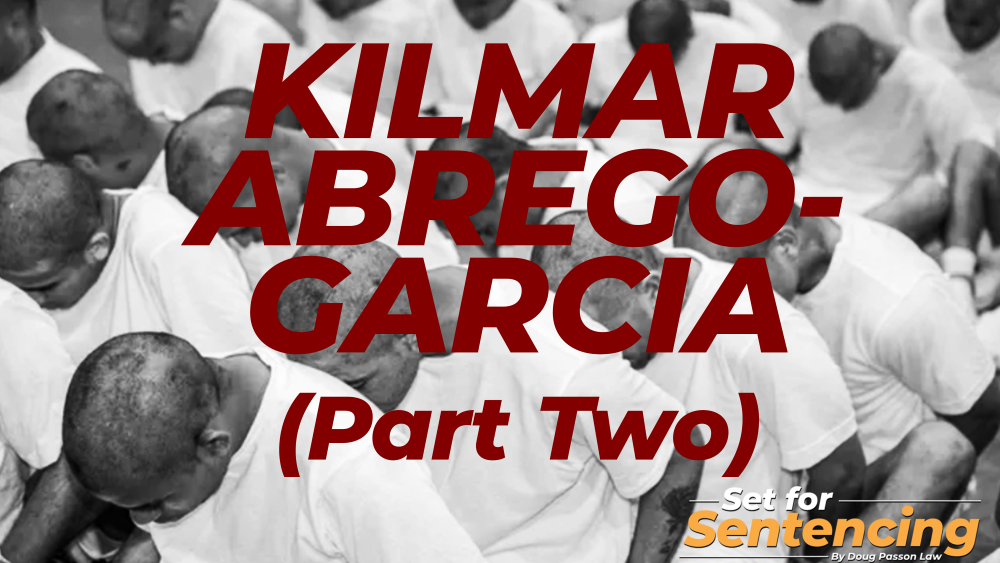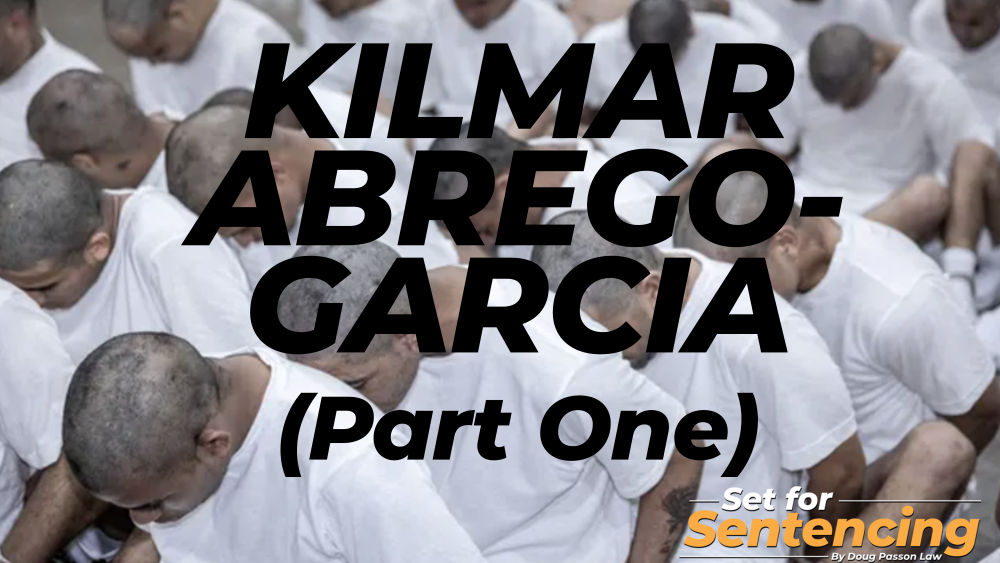Year of the Dragon: Sentencing Guideline New Year’s Cheers & Jeers

Set for Sentencing is back! What better way to start off the new year than to review some of the big guideline changes that took effect at the end of the year, and some forward looking sentencing commission proposals for changes that could be coming in 2024?
We kick off this year with our friend and colleague, guidelines and sentencing stats guru, Mark Allenbaugh. In China, this is the Year of the Dragon. There, it’s a symbol of wisdom; which is kind of ironic given the fire and fury that often occurs when the US justice system rears its angry, vengeful head. So, our prayer for the coming year is more wisdom, more fairness, more humanity and more JUSTICE for the sentencing process.
The last thing I wanted to tell you is that I have decided to put out episodes of Set for Sentencing on a BI-MONTHLY basis, rather than every week. This will free up some time for me to focus on some other great projects I’m working on, including my mitigation video guidebook, some short-form online content, learning to the play the mandolin, sipping great tequila, and yes, putting the finishing touches on my first album. 🙂 So, stay tuned!
IN THIS EPISODE:
- Some major changes we gave short-shrift to in previous episodes, including the 3rd point for acceptance of responsibility, and changes to status points related to criminal history, and changes to the “safety valve provision”;
- The need for aggressive pre-trial litigation, and now without fear of losing the 3rd point;
- Newly proposed amendment pertaining to “acquitted conduct”;
- Newly proposed amendment moving “intended loss” into text of guideline, thereby resolving the issue created by Kisor v. Wilkie;
- Newly proposed amendment related to “criterion 10” of the Zero Point Offender guideline (ZIPPO), and the need to reach out to the commission to oppose this;
- Doug’s plans to publish his book on mitigation videos in 2024.
CONTACT THE SENTENCING COMMISSION (OR YOUR CONGRESSPEOPLE) ABOUT PROPOSED GUIDELINE AMENDMENTS:
We spent a fair amount of time on the proposed changes to the new Zero Point Offender provision, in particular, the Commissions stated desire to amend the guideline to clarify the leader/organizer exclusion. There is NO EMPIRACAL evidence to support the claim that those who participated in a conspiracy and had an enhanced role in the crime are prone to recidivism!
You can find all proposed amendments here: https://www.ussc.gov/guidelines/amendments/proposed-2024-amendments-federal-sentencing-guidelines
For some proposed language to include in your correspondence, this is the gist of our argument:
The proposed amendment to criterion 10 to place the “continuing criminal enterprise” language into a separate criterion is not a “technical” amendment. It would presumably preclude any offender who received an upward adjustment under 3B1.1 from receiving the new downward adjustment under 4C1.1.
The commission prides itself on making data/empiracally based adjustments to the guidelines. However, the Commission has cited no empirical evidence to support such a broad exclusionary criterion. Moreover, given the significant litigation that already has ensured regarding both the prospective and retrospective application of 4C1.1, any amendments now will cause further confusion over application of USSG 4C1.1.
As the Commission itself has indicated, criterion 10 (in its current form) is taken from the fourth prong of the safety valve at 18 USC 3553(f)(4). Courts have interpreted 18 USC 3553(f)(4) to exclude from the safety valve only management-level drug traffickers, i.e., only those engaged in a “continuing series” of drug offenses “from which such person obtains substantial income or resources.” 21 USC 848(c)(2). Excluding such individuals from receiving the Zero Point Offender adjustment makes sense inasmuch as such offenders are, by definition, recidivists.
However, the Commission created 4C1.1 to address the fact that those with zero criminal history points have significantly lower rates of recidivism than those with even a single point. As there is no evidence to suggest that an offender that otherwise meets all the 4C1.1 criteria presents a substantial risk of recidivism merely because the offender received an adjustment under 3B1.1, the Commission should decline to make further amendments to the criteria at 4C1.1 at this time.
Readers may submit their comments to the Commission on or before February 22, 2024 here: https://comment.ussc.gov/apex/r/ussc_apex/publiccomment/home
LINKS TO OTHER RELEVANT SET FOR SENTENCING EPISODES:
Ep. 36: Presumed Guilty: Using Acquitted, Dismissed, and Uncharged Conduct to Increase Sentences:
https://youtu.be/93dOQ76t7tw?si=jx1_CFV2P8JnITt8
Ep. 65: Acquitted Conduct Revisited: Mmmmm… Flavors of Evil:
https://youtu.be/iRG6cbZ_YCY?si=5tOVXg2QWKES–Js
Ep. 72: Imperfect 10: Why thousands will be deemed ineligible for the ZPO and what to do about it:
https://youtu.be/amEXfhgMpa8?si=jEJ_W9fiGvRCDKis
Last, but not least, the wonderful tequila I was sipping in this episode, is Don Rico (Don Rico Tequila | ¡Ay Qué Rico! | Austin, Texas (ayquerico.com)) I don’t get compensated for these endorsements. I just love talking about (and sipping) great tequila! The cool thing about Don Rico, besides it being delicious and confirmed additive free on Tequila Matchmaker, is that the company was started by a fellow lawyer, Rick Olivo. Rick represented a major brand, fell in love with tequila, and started his own brand. It’s not yet available in every state, but hopefully it will be soon.
Sharing is caring!



